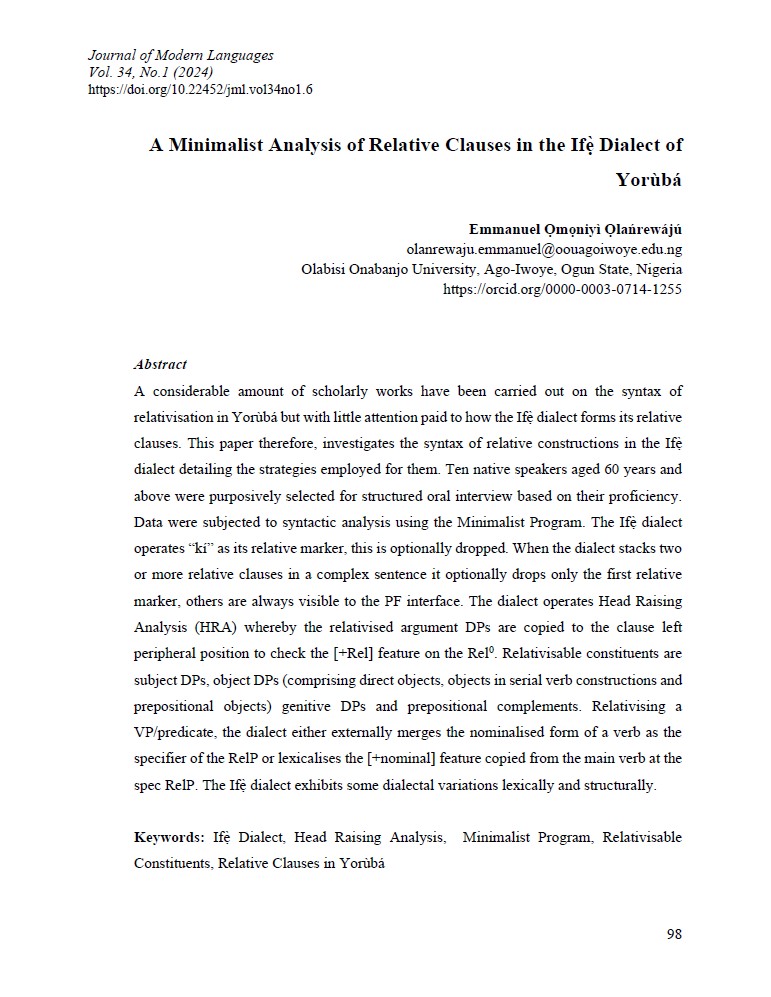A Minimalist Analysis of Relative Clauses in the Ifẹ̀ Dialect of Yorùbá
DOI:
https://doi.org/10.22452/jml.vol34no1.6Keywords:
Ifẹ̀ Dialect, Head Raising Analysis, Minimalist Program, Relativisable Constituents, Relative Clauses in YorùbáAbstract
A considerable amount of scholarly works have been carried out on the syntax of relativisation in Yorùbá but with little attention paid to how the Ifẹ̀ dialect forms its relative clauses. This paper therefore, investigates the syntax of relative constructions in the Ifẹ̀ dialect detailing the strategies employed for them. Ten native speakers aged 60 years and above were purposively selected for structured oral interview based on their proficiency. Data were subjected to syntactic analysis using the Minimalist Program. The Ifẹ̀ dialect operates “kí” as its relative marker, this is optionally dropped. When the dialect stacks two or more relative clauses in a complex sentence it optionally drops only the first relative marker, others are always visible to the PF interface. The dialect operates Head Raising Analysis (HRA) whereby the relativised argument DPs are copied to the clause left peripheral position to check the [+Rel] feature on the Rel0. Relativisable constituents are subject DPs, object DPs (comprising direct objects, objects in serial verb constructions and prepositional objects) genitive DPs and prepositional complements. Relativising a VP/predicate, the dialect either externally merges the nominalised form of a verb as the specifier of the RelP or lexicalises the [+nominal] feature copied from the main verb at the spec RelP. The Ifẹ̀ dialect exhibits some dialectal variations lexically and structurally.
Downloads





